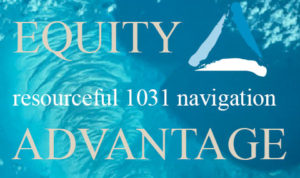
Like-Kind Property
Like-kind refers to the nature of the investment. Any type of investment property can be Exchanged for another type, or like-kind investment property. For example, a single-family rental can be Exchanged for a duplex, raw land for a shopping center, an office for apartments. Any combination works and provides Exchangors with great flexibility.
*Tax reform as currently drafted will eliminate Exchanges of personal property, such as art, collectable cars and aircraft. If contemplating an Exchange of personal property please consult your tax council immediately for guidance. Stay tuned for updates!
What Qualifies As 1031 Exchange Property?
Any property held for productive use in trade or business or for investment can be Exchanged for like-kind property.

Definition of Like-Kind Property Per Tax Code:
Nonrecognition of Gain or Loss From Exchanges Solely in Kind.
No gain or loss shall be recognized on the Exchange of property held for productive use in trade or business or for investment. This does not apply to any Exchange of stock in trade or other property held primarily for sale, nor stocks, bonds, notes, chooses in action, interests in partnerships, certificates of trust or beneficial interest, other securities or evidences of indebtedness or interest [1031(a)].
Ineligible 1031 Exchange Property
The following properties may not be Exchanged using Section 1031: a personal residence (unless a portion of the personal residence consists of business property), stock in trade, developed lots, property held for resale immediately after acquisition or completion of improvements (speculation homes or fixer type properties that are not rented out or held onto for a period of time before being sold), the good will of a business, and partnership interests. Second homes may or may not qualify depending on the use and tax treatment.
INTRODUCING
The Equity Advantage Incorporated & IRA Advantage YouTube Channels
Can’t make our monthly Equity Advantage and IRA Advantage Continuing Education Seminars? Now catch some of the highlights available online from the comfort of your cell phone or computer!
Head to our channels and watch as owner of Equity Advantage and IRA Advantage, David Moore speaks on the basics of 1031 Exchanges and Self-Directed IRA’s in today’s market, including What Is An Exchange, What Can Be Exchanged, How Are Self-Directed IRA’s created, and more!
[one_half]
[one_half_last]
Subscribe to our channel for more videos!
December 1031 & IRA Oregon Continuing Education Courses
2 Available Credit Hours
Our December classes filled up fast! Sign up for our newsletters to be notified of our next courses:

Our December 11th 1031 Exchange class was:
Swap Till You Drop & Tax Reform
Four Cornerstones
The Exchange Process
Changes Per Tax Reform
*1031 has been spared with tax reform and actually simplified in some instances
Our December 11th Basic IRA class was:
Everything you need to know about using IRA & 401k funds to make Real Estate and other REAL investments!
The Guys With All The Answers…
 David and Thomas Moore, the co-founders of Equity Advantage & IRA Advantage
David and Thomas Moore, the co-founders of Equity Advantage & IRA Advantage
Whether working through a 1031 Exchange with Equity Advantage, acquiring real estate with an IRA through IRA Advantage or listing investment property through our Post 1031 property listing site we are here to help Investors get where they want to be. About Us…
FEATURED
Equity Out and About…
 We had an awesome time at CCIM this month! David Moore spoke on What You Should Do With Sale’s Proceeds in Today’s Real Estate Market, and we had a great panel of judges taking questions. More…
We had an awesome time at CCIM this month! David Moore spoke on What You Should Do With Sale’s Proceeds in Today’s Real Estate Market, and we had a great panel of judges taking questions. More…









